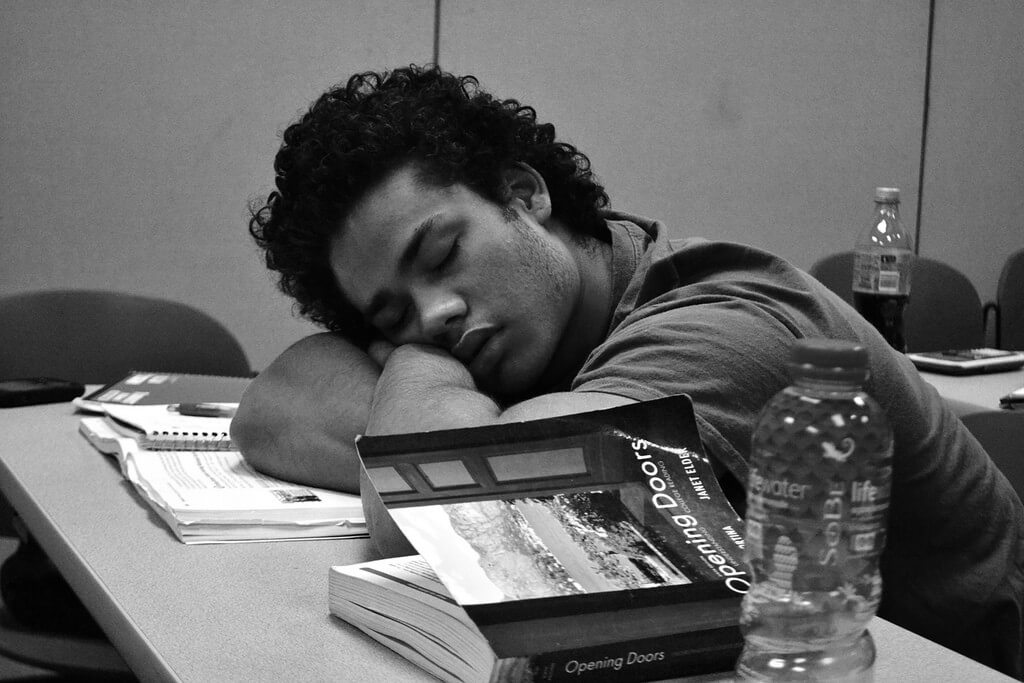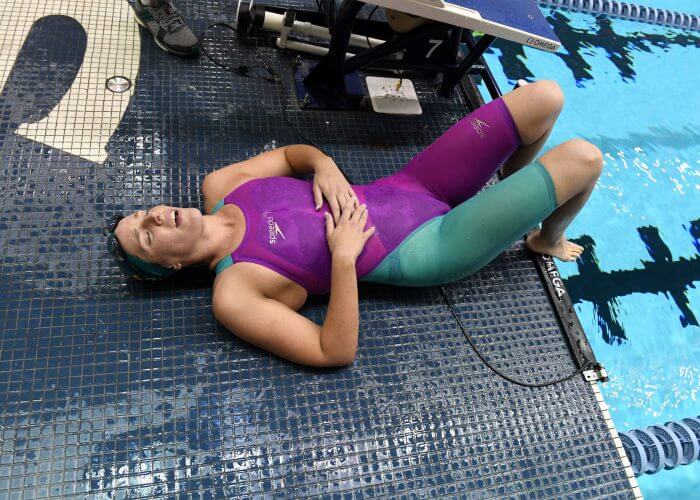Mental Health, Student Athletes, and Final Exams

Commentary by Norah Hunt, Swimming World College Intern.
Finals season is here, and the majority of student athletes consider this period a very stressful time of the semester. Studying, sleeping, the cold weather, and keeping up with the (reduced) practice hours all can take a toll on mental health. Fortunately, the prevalence of mental illness in athletes is just now coming into public attention, after being underrated and pushed aside for many generations. Most people would safely consider student athletes more stressed out than the average individual, but statistics are coming out showing coaches and parents just how stressed out these young people are.

Student athletes experience very different kinds of stress than non-athletes.
One study broke down the different types of stressors among these two populations, and found that non-athletes were primarily stressed about social isolation and financial burdens, while athletes were more stressed about having too many responsibilities and not having enough time to complete every task they felt they needed to finish.

Photo Courtesy: Peter H. Bick
Student athletes are less likely to seek out help for mental illness, even though 73% of them feel like their coaches are very approachable and care about their well being.
This statistic has puzzled many researchers, because it seems counterintuitive. One explanation could be the desire to maintain a perfect image, as former defensive tackle Jonathon Meldrum explains, “It was very hard, as a man playing Division I football, to go to someone and say ‘I’m having a hard time’”. This sentiment transcends sports. Especially in a sport that requires such mental grit, like swimming, it is hard to actually admit that help is needed.

Photo Courtesy: Delly Carr / Swimming Australia Ltd.
Female athletes are more likely to show signs of depression than their male counterparts.
This finding fits with the general theme of the population; women are more likely to be depressed than men. Experts cannot pin down one exact reason for this, but many believe it is largely due to self esteem issues.
The prevalence of eating disorders is much higher in female athletes than in women in general.
This statistic can be further broken down: eating disorders are higher among athletes who participate in sports that require tight uniforms, such as cheerleading, swimming, gymnastics, or track. Experts agree that the eating disorder likely stems from issues about performance: they believe being thin will enhance their ability to successfully participate in their sport.
Most of these issues stem from stress, which has been proven to be directly correlated to almost every mental illness out there. With finals approaching, it is important to take proper steps to care for oneself. Perhaps most important is a reliance on a social support system. Student athletes have their teams, a built in group of people there specifically to support each other. Rely on them; their positivity and unrelenting support are incredible, and absolutely transcend the pool. Coaches also have their athlete’s best interests at heart, and can be a great resource during hectic times.
The other crucial component to success and minimal stress is to appreciate the down time. Meals with friends, sleep, and social activities are important, and should not be underestimated. Even practice can be a release at times; it can be a place to think about something other than stressors and get some good hormones flowing. While swimming can sometimes cause stress, it is important to remember that at the end of the day it does not define a person, and it is supposed to be fun. It is as simple as can be, and at its core consists of moving back and forth across a black line. Athletes over complicate it, but most of the time that extra stress is not needed.
The mental illness epidemic that is plaguing many college athletic systems, although long overlooked, is starting to receive the attention that it warrants. Prevention programs are in place, and the public is becoming more invested and aware of the problem. Finals and training trips are approaching, and in the midst of these stressful times it is important to always remember that help and support is around, breaks are needed, and sleep is important. Go and conquer the end of the year!
All commentaries are the opinion of the author and do not necessarily reflect the views of Swimming World Magazine nor its staff.




Hang in there Caleb Treadwell
Libby
This is scary. First thing my 11 year old said to me after swim practice was she didn’t think she could swim Every Night next week because of exams. She then looked at het testing schedule and determined what nights she had to miss.
So true
You’re doing awesome Natalie Thomas
Thanks xx